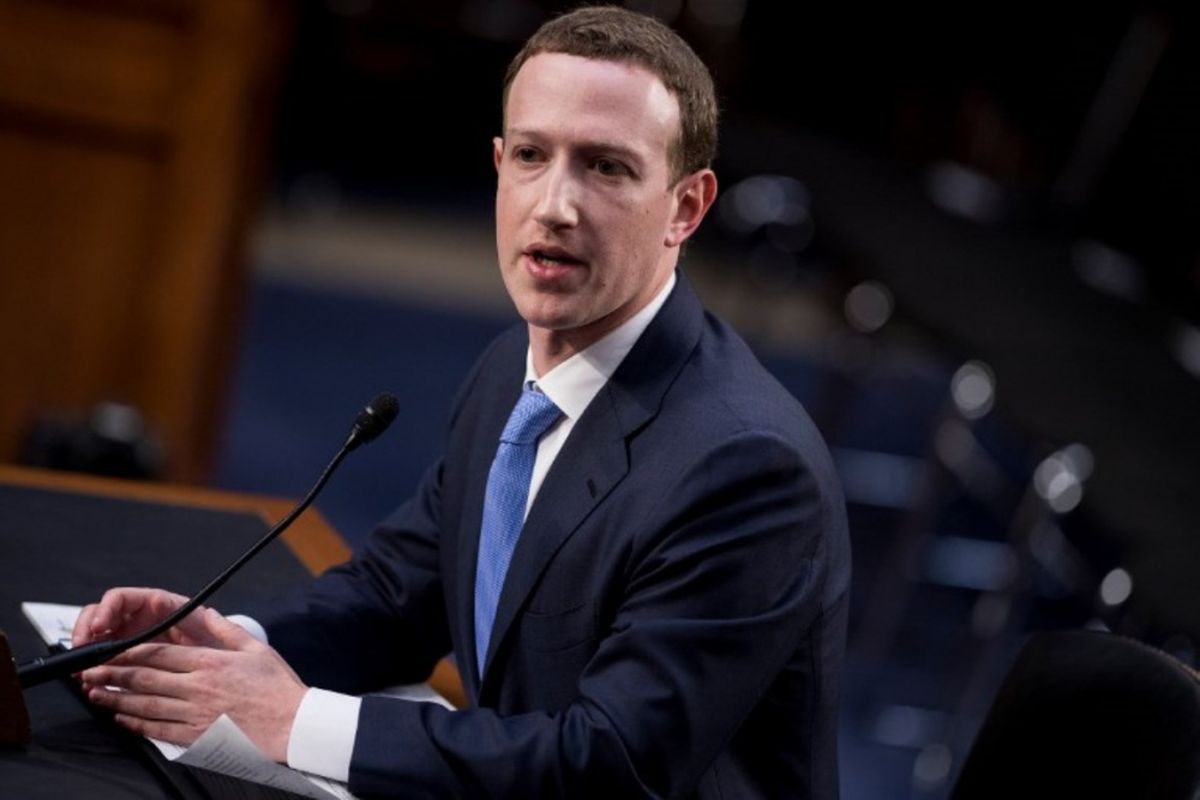Facebook Bans Holocaust Denial Posts in Clamp Down against Conspiracy Theories

“I’ve struggled with the tension between standing for free expression and the harm caused by minimizing or denying the horror of the Holocaust,” Mark Zuckerberg wrote.
“My own thinking has evolved as I’ve seen data showing an increase in anti-Semitic violence, as have our wider policies on hate speech."
Zuckerberg had raised the ire of the Claims Conference, based in New York, and others with comments in 2018 to the tech website Recode that posts denying the Nazi annihilation of 6 million Jews would not necessarily be removed.
He said he did not think Holocaust deniers were “intentionally” getting it wrong, and that as long as posts were not calling for harm or violence, even offensive content should be protected.
Read also: Facebook Failed to Remove Militia Page Linked to Kenosha Unrest
After an outcry, Zuckerberg, who is Jewish himself, clarified that while he personally found “Holocaust denial deeply offensive” he believed that “the best way to fight offensive bad speech is with good speech.”
The Anti-Defamation League said it was relieved by Monday's shift but criticized Facebook for taking nearly a decade after the New York-based group first began to publicly call on the company to curb Holocaust denial in 2011.
The group tracked more anti-Semitic incidents in the US last year than at any time over the past four decades and has said it continues to find Holocaust denial groups on Facebook, some hidden and most private.
“While Facebook has made numerous positive changes to its policies since that time, it stubbornly had held onto this outrageous platform policy, even in the face of the undeniable threat of growing antisemitism and antisemitic violence around the world,” the group’s CEO, Jonathan Greenblatt, wrote in a blog post.
The Claims Conference on Monday said it welcomed Zuckerberg's changed approach to conspiracy theories and misinformation on the Nazi genocide and the company's decision to take action after its campaign of survivor testimonials.
“It’s a very important statement and it’s a building block toward ensuring that this sort of anti-Semitism is not amplified,” said Greg Schneider, the group's Executive Vice President.
The group on Sunday posted its 75th video from a Holocaust survivor appealing directly to Zuckerberg.
Fred Kurz, an American who was born in Austria in 1937, described losing both of his parents in concentration camps.
Read also: Ex-Stutthof Concentration Camp Guard Bruno Dey Sentenced for WW II Crimes
Zuckerberg never met directly with the group but Schneider said he believes the voices of survivors and their “moral authority” made a difference.


































